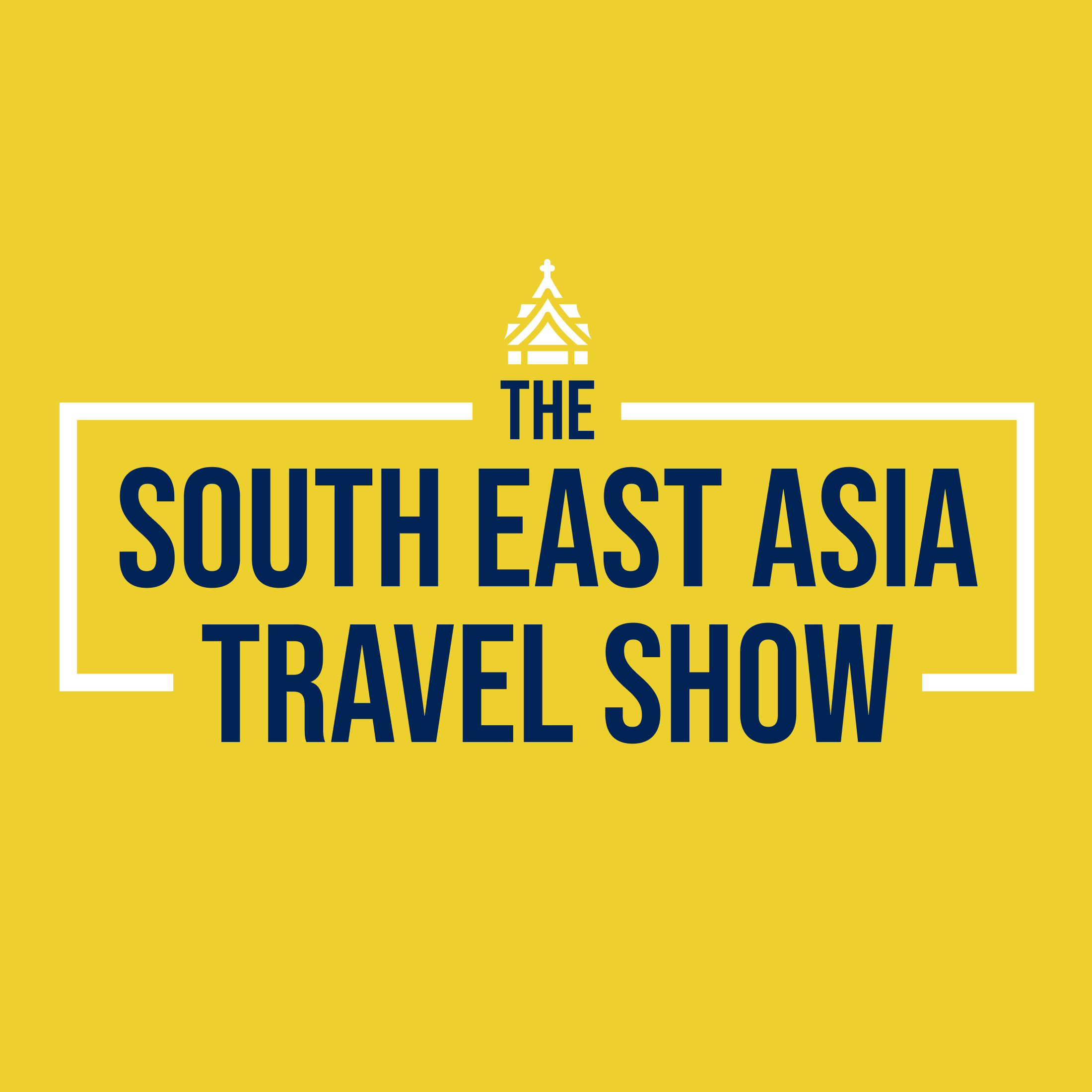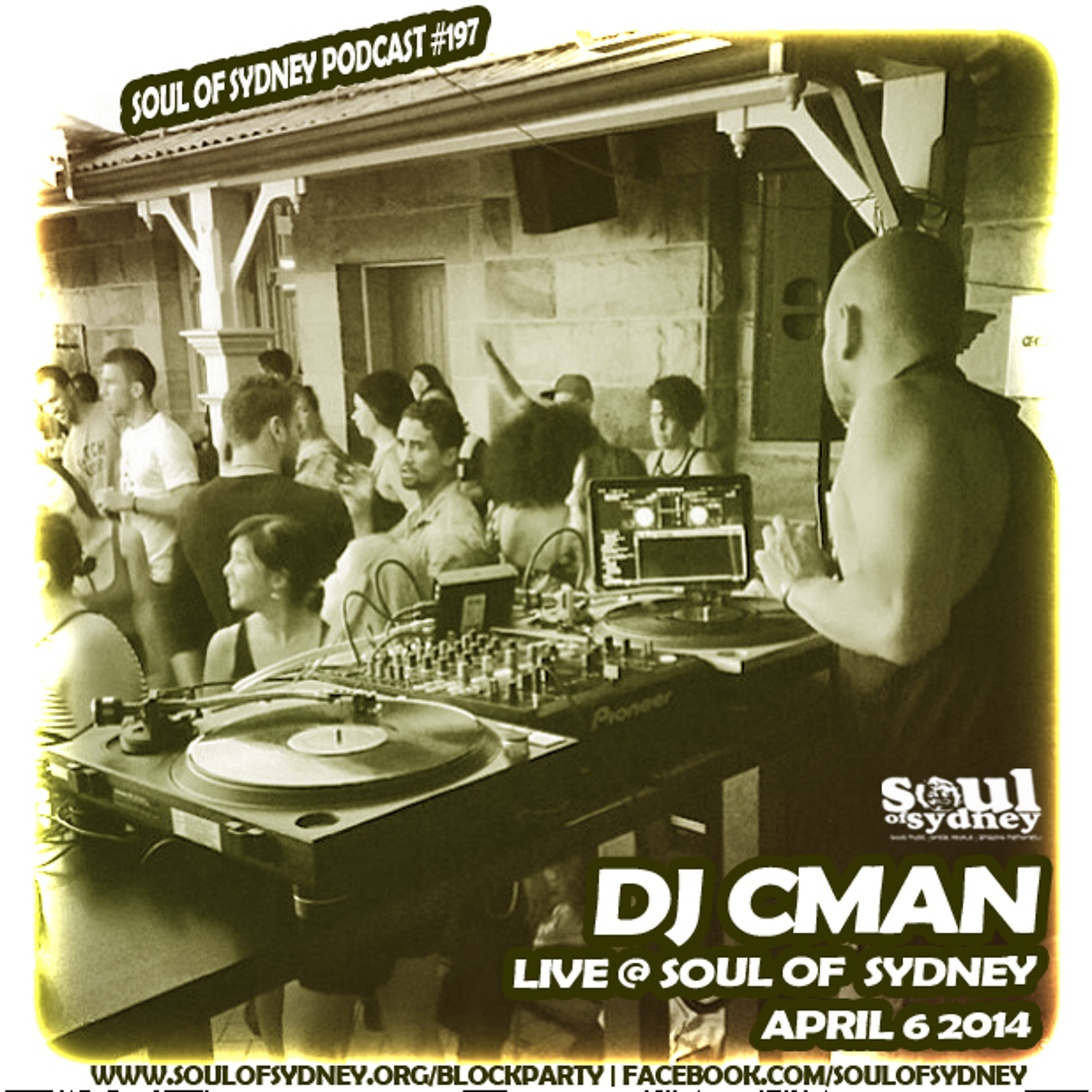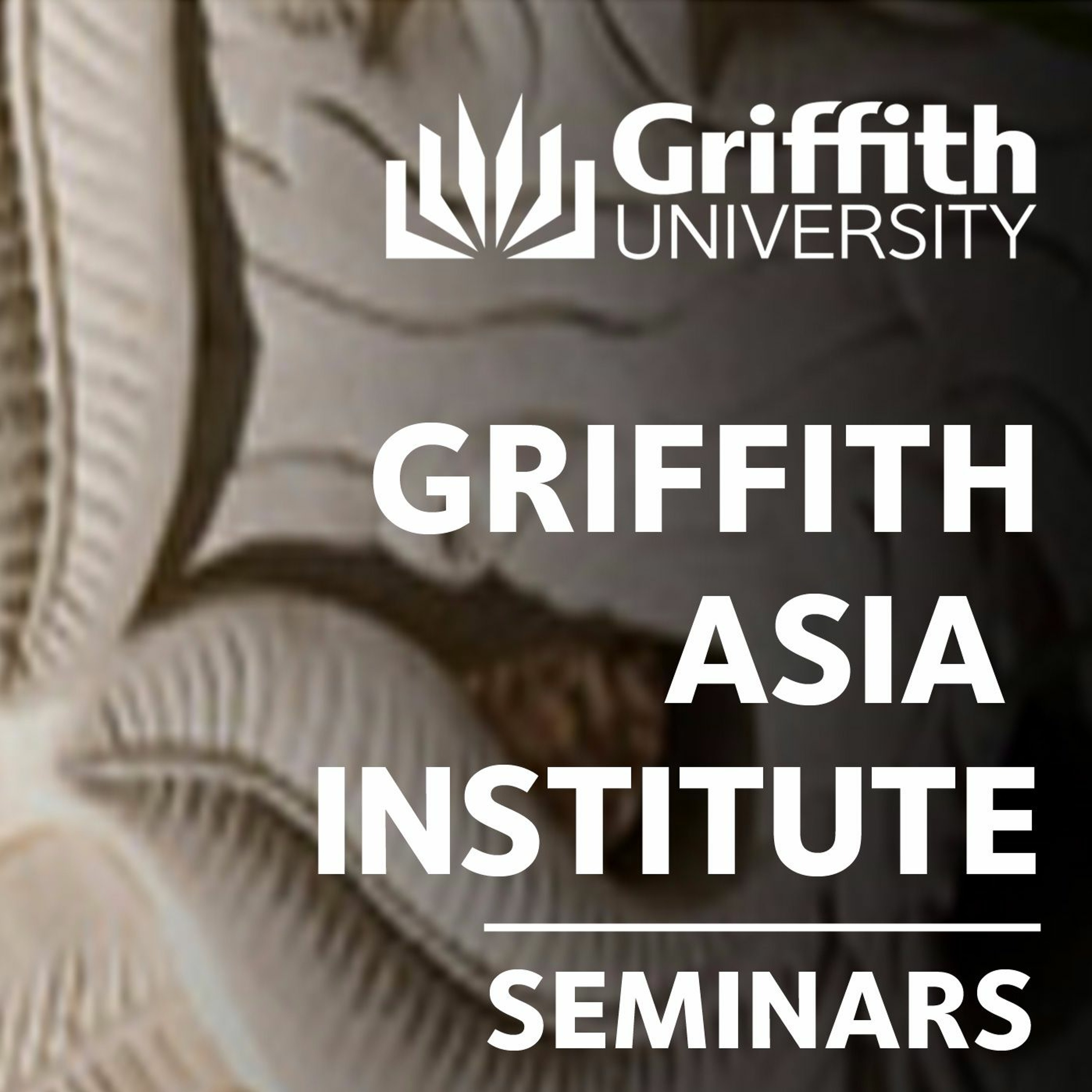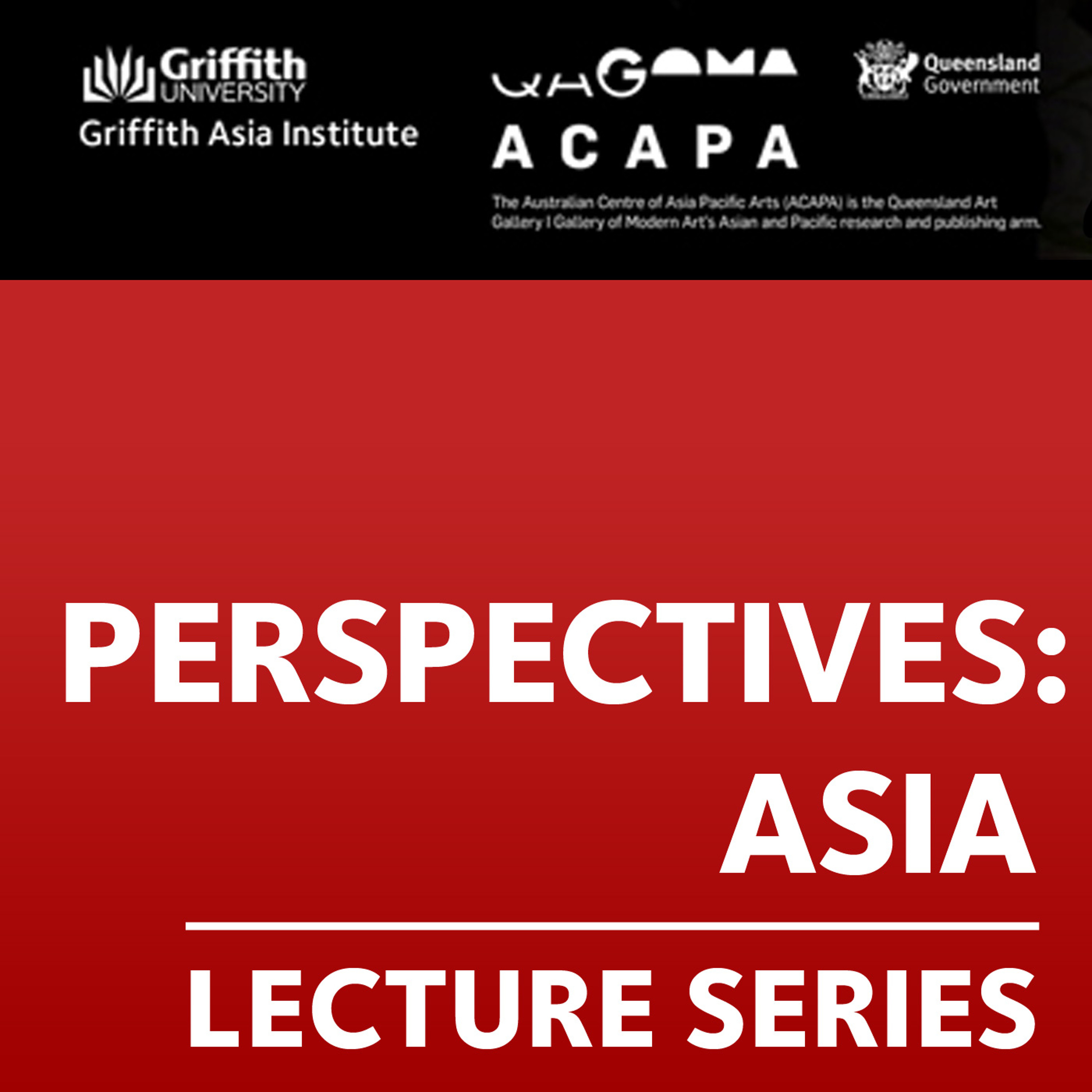Shows
 The South East Asia Travel Show"From Battambang to Taking the Stage in New York, Sydney & Montreal": The Best Bits From The South East Asia Travel Show in May 2024"From Battambang to Taking the Stage in New York, Sydney & Montreal" to "Say versus Do in Sustainable Tourism" and "Backwards Steps in Domestic Tourism in ASEAN". Welcome to the third edition of our monthly mini-round-up of the key moments from recent podcast discussions and interviews.
During May, Craig Dodge, Senior Director of Sales & Marketing at Phare, discusses the compelling journey of Cambodia's arts circus from a wartime refugee camp in Battambang to a theatre stage tour taking in New York, Sydney & Montreal. Plus, we discuss the backwards steps in incentivising and promoting domestic tourism in South East...2024-06-0515 min
The South East Asia Travel Show"From Battambang to Taking the Stage in New York, Sydney & Montreal": The Best Bits From The South East Asia Travel Show in May 2024"From Battambang to Taking the Stage in New York, Sydney & Montreal" to "Say versus Do in Sustainable Tourism" and "Backwards Steps in Domestic Tourism in ASEAN". Welcome to the third edition of our monthly mini-round-up of the key moments from recent podcast discussions and interviews.
During May, Craig Dodge, Senior Director of Sales & Marketing at Phare, discusses the compelling journey of Cambodia's arts circus from a wartime refugee camp in Battambang to a theatre stage tour taking in New York, Sydney & Montreal. Plus, we discuss the backwards steps in incentivising and promoting domestic tourism in South East...2024-06-0515 min Gatty Rewind PodcastSophie Chao, Department of Anthropology, University of SydneyThis week's Gatty Lecture Rewind podcast features ANU department of anthropology professor Dr. Sophie Chao. In the episode, Francine unpacks Dr. Chao's Gatty Lecture titled: We are (not) Monkeys: Raciality, Animality, and Cosmopolitical Struggles in Indonesian West Papua. They also dive further into what inspired her work, and the ways it connects with her expertise in environmental anthropology, and reflect critically on questions about the ethicality, justice, and positionality surrounding her research. Lightning Round: 03:19 Research and lecture summary: 8:41 Advice for researchers and recommendations: 43:06 Dr. Chao's Top Recommendations: The Nutmeg's Curse...2023-03-2154 min
Gatty Rewind PodcastSophie Chao, Department of Anthropology, University of SydneyThis week's Gatty Lecture Rewind podcast features ANU department of anthropology professor Dr. Sophie Chao. In the episode, Francine unpacks Dr. Chao's Gatty Lecture titled: We are (not) Monkeys: Raciality, Animality, and Cosmopolitical Struggles in Indonesian West Papua. They also dive further into what inspired her work, and the ways it connects with her expertise in environmental anthropology, and reflect critically on questions about the ethicality, justice, and positionality surrounding her research. Lightning Round: 03:19 Research and lecture summary: 8:41 Advice for researchers and recommendations: 43:06 Dr. Chao's Top Recommendations: The Nutmeg's Curse...2023-03-2154 min SSEAC StoriesFighting for Inclusion: Disability Activism in Indonesia - Dr Thushara DibleyTraditionally and historically, disability has widely been seen and treated as a medical impediment. For decades, the Indonesian Government perpetuated this medical model of disability, which focuses on what a person cannot do and cannot be. But in recent years, activists have challenged this notion, emphasizing that 'disability' is the result of the interaction between people living with impairments and an environment filled with physical, attitudinal, communication and social barriers.
In this podcast, Dr Thushara Dibley chats with Dr Natali Pearson about disability activism in Indonesia, highlighting the success of local activists in changing Indonesian law and shifting attitudes in...2020-09-2314 min
SSEAC StoriesFighting for Inclusion: Disability Activism in Indonesia - Dr Thushara DibleyTraditionally and historically, disability has widely been seen and treated as a medical impediment. For decades, the Indonesian Government perpetuated this medical model of disability, which focuses on what a person cannot do and cannot be. But in recent years, activists have challenged this notion, emphasizing that 'disability' is the result of the interaction between people living with impairments and an environment filled with physical, attitudinal, communication and social barriers.
In this podcast, Dr Thushara Dibley chats with Dr Natali Pearson about disability activism in Indonesia, highlighting the success of local activists in changing Indonesian law and shifting attitudes in...2020-09-2314 min SSEAC StoriesStorms and Shipwrecks: The Story of the Tang Treasures - Dr Natali PearsonIn 1998, Indonesian fishermen diving for sea cucumbers discovered a shipwreck off Belitung Island in the Java Sea. The ship was a Middle Eastern vessel constructed from planks sewn together with rope — and its remarkable cargo originally included around 70,000 ceramics produced in China, as well as luxurious objects of gold and silver. Whether the vessel sank because of a storm or other factors as it traversed the heart of the global trading network remains unknown. Bound for present-day Iran and Iraq, it is the earliest ship found in Southeast Asia thus far and provides proof of active maritime trade in the ni...2020-09-1715 min
SSEAC StoriesStorms and Shipwrecks: The Story of the Tang Treasures - Dr Natali PearsonIn 1998, Indonesian fishermen diving for sea cucumbers discovered a shipwreck off Belitung Island in the Java Sea. The ship was a Middle Eastern vessel constructed from planks sewn together with rope — and its remarkable cargo originally included around 70,000 ceramics produced in China, as well as luxurious objects of gold and silver. Whether the vessel sank because of a storm or other factors as it traversed the heart of the global trading network remains unknown. Bound for present-day Iran and Iraq, it is the earliest ship found in Southeast Asia thus far and provides proof of active maritime trade in the ni...2020-09-1715 min SSEAC StoriesWeathering Typhoon COVID: The Economic Consequences of COVID-19 for ASEAN - Dr Sandra Seno-AldayThe nature and extent of risk exposure determines the severity of the effects of a crisis. From the perspective of international trade, this session examines the pre-COVID-19 risk exposure of the ASEAN region, investigates its post-COVID-19 economic effects, and explores possible pathways for Southeast Asia to emerge from the ongoing crisis. As in the case of other regional integration initiatives, the establishment of ASEAN in 1967 encouraged the formation of economic relationships among countries the region. But because the ASEAN framework is unlike any other in the world, the emergent relationship structures in Southeast Asia are different compared to those in...2020-08-0316 min
SSEAC StoriesWeathering Typhoon COVID: The Economic Consequences of COVID-19 for ASEAN - Dr Sandra Seno-AldayThe nature and extent of risk exposure determines the severity of the effects of a crisis. From the perspective of international trade, this session examines the pre-COVID-19 risk exposure of the ASEAN region, investigates its post-COVID-19 economic effects, and explores possible pathways for Southeast Asia to emerge from the ongoing crisis. As in the case of other regional integration initiatives, the establishment of ASEAN in 1967 encouraged the formation of economic relationships among countries the region. But because the ASEAN framework is unlike any other in the world, the emergent relationship structures in Southeast Asia are different compared to those in...2020-08-0316 min SSEAC StoriesDeath and Taxes: Indonesia's Smoking Problem - Dr Elisabeth KramerIndonesia has one of the highest smoking rates in the world and a poor record for implementing the public health measures needed to see these rates fall. Smoking is estimated to kill more than 225,000 Indonesians per year and contributes to many more deaths. Yet tobacco regulation has been highly contested in recent years.
Dr Elisabeth Kramer chats with Dr Thushara Dibley about tobacco regulation in Indonesia, delving into the myriad of challenges to tobacco control in the country, from cultural to economic factors, and short-term political agendas.
About Dr Elisabeth Kramer:
Elisabeth is Deputy Director at the Sydney Southeast Asia...2020-07-2916 min
SSEAC StoriesDeath and Taxes: Indonesia's Smoking Problem - Dr Elisabeth KramerIndonesia has one of the highest smoking rates in the world and a poor record for implementing the public health measures needed to see these rates fall. Smoking is estimated to kill more than 225,000 Indonesians per year and contributes to many more deaths. Yet tobacco regulation has been highly contested in recent years.
Dr Elisabeth Kramer chats with Dr Thushara Dibley about tobacco regulation in Indonesia, delving into the myriad of challenges to tobacco control in the country, from cultural to economic factors, and short-term political agendas.
About Dr Elisabeth Kramer:
Elisabeth is Deputy Director at the Sydney Southeast Asia...2020-07-2916 min SSEAC StoriesOvercoming Motor Neuron Disease in Malaysia - Prof Marina Kennerson & Prof Nortina ShahrizailaMotor neuron disease (MND), also known as amyotrophic lateral sclerosis (ALS), is a devastating disease where the dying-off (degeneration) of motor nerves results in muscle weakness affecting an individual’s ability to move, speak, swallow, perform daily activities and breathe. There is still no effective cure for MND, as there is no clear understanding of why a previously healthy person develops this disorder at a later stage.
Professor Marina Kennerson and Professor Nortina Shahrizaila chat with Dr Natali Pearson about MND and their efforts to develop a research program for MND screening in Malaysia, which will pave the way for ob...2020-07-1521 min
SSEAC StoriesOvercoming Motor Neuron Disease in Malaysia - Prof Marina Kennerson & Prof Nortina ShahrizailaMotor neuron disease (MND), also known as amyotrophic lateral sclerosis (ALS), is a devastating disease where the dying-off (degeneration) of motor nerves results in muscle weakness affecting an individual’s ability to move, speak, swallow, perform daily activities and breathe. There is still no effective cure for MND, as there is no clear understanding of why a previously healthy person develops this disorder at a later stage.
Professor Marina Kennerson and Professor Nortina Shahrizaila chat with Dr Natali Pearson about MND and their efforts to develop a research program for MND screening in Malaysia, which will pave the way for ob...2020-07-1521 min SSEAC StoriesBringing Justice to Victims of Wartime Sexual Violence in Cambodia - Dr Rosemary GreyGender-based crimes, especially rape, sexual violence and forced marriage, are extremely common in times of war. The consequences for victims and their communities are devastating. Despite that, these crimes have historically been largely invisible in international war crimes trials. For the last 10 years, Dr Rosemary Grey's work has focused on making gender-based crimes more visible in international war crime trials in order to increase justice to victims, especially women and girls.
In this podcast, Dr Rosemary Grey talks with Dr Natali Pearson about the Khmer Rouge Tribunal, which sexual violence and gender-based crimes it did or did not prosecute, as...2020-07-0822 min
SSEAC StoriesBringing Justice to Victims of Wartime Sexual Violence in Cambodia - Dr Rosemary GreyGender-based crimes, especially rape, sexual violence and forced marriage, are extremely common in times of war. The consequences for victims and their communities are devastating. Despite that, these crimes have historically been largely invisible in international war crimes trials. For the last 10 years, Dr Rosemary Grey's work has focused on making gender-based crimes more visible in international war crime trials in order to increase justice to victims, especially women and girls.
In this podcast, Dr Rosemary Grey talks with Dr Natali Pearson about the Khmer Rouge Tribunal, which sexual violence and gender-based crimes it did or did not prosecute, as...2020-07-0822 min SSEAC StoriesDisaster Resilience and Humanitarian Response in the Philippines - Dr Aaron OpdykeThe Philippines is one of the most natural hazard-prone countries in the world. With the social and economic cost of disasters in the country increasing due to population growth, migration, unplanned urbanisation, environmental degradation and global climate change, disaster resilience and management are more important than ever. Dr Aaron Opdyke chats with Dr Natali Pearson about his work in disaster risk reduction and humanitarian response in the Philippines.
About Aaron Opdyke:
Aaron is a Lecturer in Humanitarian Engineering in the Faculty of Engineering at the University of Sydney and the Philippines Country Coordinator for the Sydney Southeast Asia Centre. His...2020-06-2415 min
SSEAC StoriesDisaster Resilience and Humanitarian Response in the Philippines - Dr Aaron OpdykeThe Philippines is one of the most natural hazard-prone countries in the world. With the social and economic cost of disasters in the country increasing due to population growth, migration, unplanned urbanisation, environmental degradation and global climate change, disaster resilience and management are more important than ever. Dr Aaron Opdyke chats with Dr Natali Pearson about his work in disaster risk reduction and humanitarian response in the Philippines.
About Aaron Opdyke:
Aaron is a Lecturer in Humanitarian Engineering in the Faculty of Engineering at the University of Sydney and the Philippines Country Coordinator for the Sydney Southeast Asia Centre. His...2020-06-2415 min SSEAC StoriesSupporting Sustainable Farming Practices in Cambodia - A/Prof Daniel TanImproper pest management has led to significant yield loss in rice and other crop harvests in Cambodia, causing economic losses to farmers and environmental disruption through ill-informed chemical use. The use of broad-spectrum pesticides as a solution to all observed pests is commonplace in the rice and mung bean fields of lowland Cambodia and can be linked to unsuitable sources of agricultural information.
Associate Professor Daniel Tan chats with Dr Natali Pearson about his lifelong work supporting sustainable farming practices in Cambodia, including through targeted capacity-building programs and the development of image-rich mobile phone applications to assist Cambodian farmers with...2020-06-1719 min
SSEAC StoriesSupporting Sustainable Farming Practices in Cambodia - A/Prof Daniel TanImproper pest management has led to significant yield loss in rice and other crop harvests in Cambodia, causing economic losses to farmers and environmental disruption through ill-informed chemical use. The use of broad-spectrum pesticides as a solution to all observed pests is commonplace in the rice and mung bean fields of lowland Cambodia and can be linked to unsuitable sources of agricultural information.
Associate Professor Daniel Tan chats with Dr Natali Pearson about his lifelong work supporting sustainable farming practices in Cambodia, including through targeted capacity-building programs and the development of image-rich mobile phone applications to assist Cambodian farmers with...2020-06-1719 min SSEAC StoriesThe Paradox of Risk in an Interconnected World - Dr Sandra Seno-AldayAs the world struggles with the global repercussions of local events, debates around internationalisation have become ever more relevant. Dr Sandra Seno-Alday sat down with Dr Natali Pearson to explore how different models of international business and economic networks may have distinct implications on economic risk within integrated regions, such as the EU and ASEAN.
About Sandra Seno-Alday:
Sandra is a Lecturer in the Sydney Business School at the University of Sydney, and a member of the Executive Committee of the Sydney Southeast Asia Centre. Prior to embarking on an academic career, Sandra was a consultant to a wide range...2020-05-2016 min
SSEAC StoriesThe Paradox of Risk in an Interconnected World - Dr Sandra Seno-AldayAs the world struggles with the global repercussions of local events, debates around internationalisation have become ever more relevant. Dr Sandra Seno-Alday sat down with Dr Natali Pearson to explore how different models of international business and economic networks may have distinct implications on economic risk within integrated regions, such as the EU and ASEAN.
About Sandra Seno-Alday:
Sandra is a Lecturer in the Sydney Business School at the University of Sydney, and a member of the Executive Committee of the Sydney Southeast Asia Centre. Prior to embarking on an academic career, Sandra was a consultant to a wide range...2020-05-2016 min SSEAC StoriesSex, Cyanide and CCTV: A Review of the Jessica Wongso Case by Prof Simon ButtOn 6 January 2016, a young Indonesian woman, Wayan Mirna Salihin, collapsed in an upmarket Jakarta cafe after drinking iced coffee, and died before she reached hospital. Despite limited evidence, police reports indicate that cyanide poisoning was the most likely cause of Mirna's death. Following a four-month trial, Jessica Kumala Wongso, an Australian permanent resident, was found guilty of premeditated murder and sentenced to 20 years’ imprisonment. Broadcast live on multiple national television stations, the sensational trial gripped the entire nation and continues to intrigue scholars as an example of how media bias and public pressure can impact the right to a fair tr...2020-05-1321 min
SSEAC StoriesSex, Cyanide and CCTV: A Review of the Jessica Wongso Case by Prof Simon ButtOn 6 January 2016, a young Indonesian woman, Wayan Mirna Salihin, collapsed in an upmarket Jakarta cafe after drinking iced coffee, and died before she reached hospital. Despite limited evidence, police reports indicate that cyanide poisoning was the most likely cause of Mirna's death. Following a four-month trial, Jessica Kumala Wongso, an Australian permanent resident, was found guilty of premeditated murder and sentenced to 20 years’ imprisonment. Broadcast live on multiple national television stations, the sensational trial gripped the entire nation and continues to intrigue scholars as an example of how media bias and public pressure can impact the right to a fair tr...2020-05-1321 min SSEAC StoriesWho is Left Behind in the Digital Revolution? - Dr Petr MatousIn the lead-up to SSEAC's annual ASEAN Forum, Dr Petr Matous (University of Sydney) sat down with Dr Natali Pearson to discuss his research into the roles that Information and Communications Technology (ICT) and social networks play in contexts with less-efficient institutions and infrastructure, with a view to restructuring such programs to ensure more equitable access.
Dr Petr Matous is a senior lecturer in the University of Sydney's School of Civil Engineering, and the Associate Dean for Indigenous Strategy and Services in the Faculty of Engineering. He is also an active member of the Sydney Southeast Asia Centre's Executive Committee...2020-03-3014 min
SSEAC StoriesWho is Left Behind in the Digital Revolution? - Dr Petr MatousIn the lead-up to SSEAC's annual ASEAN Forum, Dr Petr Matous (University of Sydney) sat down with Dr Natali Pearson to discuss his research into the roles that Information and Communications Technology (ICT) and social networks play in contexts with less-efficient institutions and infrastructure, with a view to restructuring such programs to ensure more equitable access.
Dr Petr Matous is a senior lecturer in the University of Sydney's School of Civil Engineering, and the Associate Dean for Indigenous Strategy and Services in the Faculty of Engineering. He is also an active member of the Sydney Southeast Asia Centre's Executive Committee...2020-03-3014 min SSEAC StoriesSocial Media and Elections in Southeast Asia - Dr Aim SinpengIn the lead-up to SSEAC's annual ASEAN Forum, Dr Aim Sinpeng (University of Sydney) sat down with Mr Kean Wong to discuss her research on online political engagement in Southeast Asian elections, and the role of social media in shaping voting behaviour.
Dr Aim Sinpeng's research interests centre on the relationships between digital media, political participation and political regimes in Southeast Asia. She is particularly interested in the role of social media in shaping state-society relations and inducing political and social change. Together with Dr Fiona Martin, Aim was recently awarded funding by Facebook to help the social media giant...2020-03-2716 min
SSEAC StoriesSocial Media and Elections in Southeast Asia - Dr Aim SinpengIn the lead-up to SSEAC's annual ASEAN Forum, Dr Aim Sinpeng (University of Sydney) sat down with Mr Kean Wong to discuss her research on online political engagement in Southeast Asian elections, and the role of social media in shaping voting behaviour.
Dr Aim Sinpeng's research interests centre on the relationships between digital media, political participation and political regimes in Southeast Asia. She is particularly interested in the role of social media in shaping state-society relations and inducing political and social change. Together with Dr Fiona Martin, Aim was recently awarded funding by Facebook to help the social media giant...2020-03-2716 min SSEAC StoriesAgribusiness, Anthropology and Activism - Dr Sophie ChaoDr Sophie Chao spoke to Dr Natali Pearson about her anthropological research in West Papua, reflecting on the challenges of conducting anthropological research, her transition from activist to academic, and the palm oil industry's impact on the Marind communities of West Papua, Indonesia.
About Sophie Chao:
Sophie joined the University of Sydney as a Postdoctoral Research Associate in History in 2019. Her research interests include human-plant relations, multispecies ethnography, race and human difference, ontological anthropology, biocapitalism, colonial and postcolonial studies, post-humanism, phenomenology, and the senses.
Sophie previously worked for international indigenous rights organization Forest Peoples Programme in the United Kingdom and...2020-03-1822 min
SSEAC StoriesAgribusiness, Anthropology and Activism - Dr Sophie ChaoDr Sophie Chao spoke to Dr Natali Pearson about her anthropological research in West Papua, reflecting on the challenges of conducting anthropological research, her transition from activist to academic, and the palm oil industry's impact on the Marind communities of West Papua, Indonesia.
About Sophie Chao:
Sophie joined the University of Sydney as a Postdoctoral Research Associate in History in 2019. Her research interests include human-plant relations, multispecies ethnography, race and human difference, ontological anthropology, biocapitalism, colonial and postcolonial studies, post-humanism, phenomenology, and the senses.
Sophie previously worked for international indigenous rights organization Forest Peoples Programme in the United Kingdom and...2020-03-1822 min SSEAC StoriesCulture, Food and Environment: Indigenous Experiences of Hunger in West Papua - Dr Sophie ChaoOver the last decade, indigenous Marind communities in the rural district of Merauke, West Papua, have seen vast swaths of their forests and savannas razed to make way for monocrop oil palm plantations. These developments are promoted by the Indonesian government as part of efforts to achieve national self-sufficiency in basic commodities, including palm oil, sugar, and rice. On the ground, however, agribusiness expansion is undermining the local food and water security of Marind communities, who have traditionally relied on the forest for their subsistence.
Dr Sophie Chao spoke to Dr Natali Pearson about the interconnections between processed food, hunger...2020-03-1818 min
SSEAC StoriesCulture, Food and Environment: Indigenous Experiences of Hunger in West Papua - Dr Sophie ChaoOver the last decade, indigenous Marind communities in the rural district of Merauke, West Papua, have seen vast swaths of their forests and savannas razed to make way for monocrop oil palm plantations. These developments are promoted by the Indonesian government as part of efforts to achieve national self-sufficiency in basic commodities, including palm oil, sugar, and rice. On the ground, however, agribusiness expansion is undermining the local food and water security of Marind communities, who have traditionally relied on the forest for their subsistence.
Dr Sophie Chao spoke to Dr Natali Pearson about the interconnections between processed food, hunger...2020-03-1818 min SSEAC StoriesDisability-inclusive Disaster Risk Reduction (DRR) in the Asia-Pacific - Dr Emma CalgaroThe Asia-Pacific is one of the most disaster-prone regions in the world. Southeast Asia is regularly struck by natural and/or man-made disasters that make international news, with often devastating casualties. While some policies are in place to develop disaster risk reduction, preparedness and recovery, some communities remain left out of the process. People with disabilities are often some of the hardest hit when disasters occur, because they are not provided with adequate access and resources to have their needs met. Dr Emma Calgaro spoke to Mr Kean Wong about her work on promoting disaster risk reduction policies that are...2019-11-1525 min
SSEAC StoriesDisability-inclusive Disaster Risk Reduction (DRR) in the Asia-Pacific - Dr Emma CalgaroThe Asia-Pacific is one of the most disaster-prone regions in the world. Southeast Asia is regularly struck by natural and/or man-made disasters that make international news, with often devastating casualties. While some policies are in place to develop disaster risk reduction, preparedness and recovery, some communities remain left out of the process. People with disabilities are often some of the hardest hit when disasters occur, because they are not provided with adequate access and resources to have their needs met. Dr Emma Calgaro spoke to Mr Kean Wong about her work on promoting disaster risk reduction policies that are...2019-11-1525 min SOUL OF SYDNEY FEEL-GOOD FUNK RADIOSOUL OF SYDNEY 197: Soul, Jazz & Funky Hip Hop Joints - DJ CMAN at Soul of Sydney - April 6 2014Here is a sweet mix, our good friend DJ CMAN throwing down the tropical funk, hip hop party jams & disco flavors from 3:30pm at our Block Party feat. Watussi. (April 6 2014)
Time: 90Mins.
Genre: Latin, Funk, Disco, Hip Hop.
Recorded: April 6 2014
About DJ CMAN /
Residing in Sydney, Australia; DJ CMAN has earned a reputation as a versatile go-to dance floor filler and mood creator with his infectious energy and signature ‘funky feel-good’ sets gaining him loyal fans both young and old.
CMAN has worked in the music industry for over 10 years and performed at Sydney’s most established venues and events includ...2019-06-281h 17
SOUL OF SYDNEY FEEL-GOOD FUNK RADIOSOUL OF SYDNEY 197: Soul, Jazz & Funky Hip Hop Joints - DJ CMAN at Soul of Sydney - April 6 2014Here is a sweet mix, our good friend DJ CMAN throwing down the tropical funk, hip hop party jams & disco flavors from 3:30pm at our Block Party feat. Watussi. (April 6 2014)
Time: 90Mins.
Genre: Latin, Funk, Disco, Hip Hop.
Recorded: April 6 2014
About DJ CMAN /
Residing in Sydney, Australia; DJ CMAN has earned a reputation as a versatile go-to dance floor filler and mood creator with his infectious energy and signature ‘funky feel-good’ sets gaining him loyal fans both young and old.
CMAN has worked in the music industry for over 10 years and performed at Sydney’s most established venues and events includ...2019-06-281h 17 SOUL OF SYDNEY FEEL-GOOD FUNK RADIOSOUL OF SYDNEY 197: Soul, Jazz & Funky Hip Hop Joints - DJ CMAN at Soul of Sydney - April 6 2014Here is a sweet mix, our good friend DJ CMAN throwing down the tropical funk, hip hop party jams & disco flavors from 3:30pm at our Block Party feat. Watussi. (April 6 2014)
Time: 90Mins.
Genre: Latin, Funk, Disco, Hip Hop.
Recorded: April 6 2014
About DJ CMAN /
Residing in Sydney, Australia; DJ CMAN has earned a reputation as a versatile go-to dance floor filler and mood creator with his infectious energy and signature ‘funky feel-good’ sets gaining him loyal fans both young and old.
CMAN has worked in the music industry for over 10 years and performed at Sydney’s most established venues and events includ...2019-06-281h 17
SOUL OF SYDNEY FEEL-GOOD FUNK RADIOSOUL OF SYDNEY 197: Soul, Jazz & Funky Hip Hop Joints - DJ CMAN at Soul of Sydney - April 6 2014Here is a sweet mix, our good friend DJ CMAN throwing down the tropical funk, hip hop party jams & disco flavors from 3:30pm at our Block Party feat. Watussi. (April 6 2014)
Time: 90Mins.
Genre: Latin, Funk, Disco, Hip Hop.
Recorded: April 6 2014
About DJ CMAN /
Residing in Sydney, Australia; DJ CMAN has earned a reputation as a versatile go-to dance floor filler and mood creator with his infectious energy and signature ‘funky feel-good’ sets gaining him loyal fans both young and old.
CMAN has worked in the music industry for over 10 years and performed at Sydney’s most established venues and events includ...2019-06-281h 17 Sydney IdeasDigital Rights and Governance in Asia: The State of the ArtsA panel of distinguished international visitors and Australia-based experts discuss and debate the ‘hot button’ issues being raised by Asian digital transformations.
Held as part of Sydney Ideas on 12 April 2018: https://sydney.edu.au/news-opinion/sydney-ideas/2018/digital-rights-and-governance-in-asia-the-state-of-the-arts.html2018-04-121h 22
Sydney IdeasDigital Rights and Governance in Asia: The State of the ArtsA panel of distinguished international visitors and Australia-based experts discuss and debate the ‘hot button’ issues being raised by Asian digital transformations.
Held as part of Sydney Ideas on 12 April 2018: https://sydney.edu.au/news-opinion/sydney-ideas/2018/digital-rights-and-governance-in-asia-the-state-of-the-arts.html2018-04-121h 22 Griffith in Asia2016. Professor Michele Ford, University of Sydney - Research SeminarPresented by: Professor Michele Ford, Director of the Sydney Southeast Asia Centre, University of Sydney, discussed "Assessing Destination Country Labour Migration Regimes in Asia: An Integrated Approach" on Thursday 22 September 2016.2016-09-2729 min
Griffith in Asia2016. Professor Michele Ford, University of Sydney - Research SeminarPresented by: Professor Michele Ford, Director of the Sydney Southeast Asia Centre, University of Sydney, discussed "Assessing Destination Country Labour Migration Regimes in Asia: An Integrated Approach" on Thursday 22 September 2016.2016-09-2729 min Griffith in Asia2016. Professor Michele Ford, University of Sydney - Research SeminarPresented by: Professor Michele Ford, Director of the Sydney Southeast Asia Centre, University of Sydney, discussed "Assessing Destination Country Labour Migration Regimes in Asia: An Integrated Approach" on Thursday 22 September 2016.2016-09-2729 min
Griffith in Asia2016. Professor Michele Ford, University of Sydney - Research SeminarPresented by: Professor Michele Ford, Director of the Sydney Southeast Asia Centre, University of Sydney, discussed "Assessing Destination Country Labour Migration Regimes in Asia: An Integrated Approach" on Thursday 22 September 2016.2016-09-2729 min Griffith in Asia2014. Mr John Garnaut, former China correspondent for The Sydney Morning Herald & The Age.'The Rise of Xi Jinping and Destruction of Bo Xilai'. Presented by Mr John Garnaut, Author and former China correspondent for The Sydney Morning Herald and The Age. 27 February 2014.
Perspectives:Asia is produced by The Griffith Asia Institute, Griffith University and the Australian Centre of Asia-Pacific Art, Queensland Art Gallery I Gallery of Modern Art.2014-09-1236 min
Griffith in Asia2014. Mr John Garnaut, former China correspondent for The Sydney Morning Herald & The Age.'The Rise of Xi Jinping and Destruction of Bo Xilai'. Presented by Mr John Garnaut, Author and former China correspondent for The Sydney Morning Herald and The Age. 27 February 2014.
Perspectives:Asia is produced by The Griffith Asia Institute, Griffith University and the Australian Centre of Asia-Pacific Art, Queensland Art Gallery I Gallery of Modern Art.2014-09-1236 min